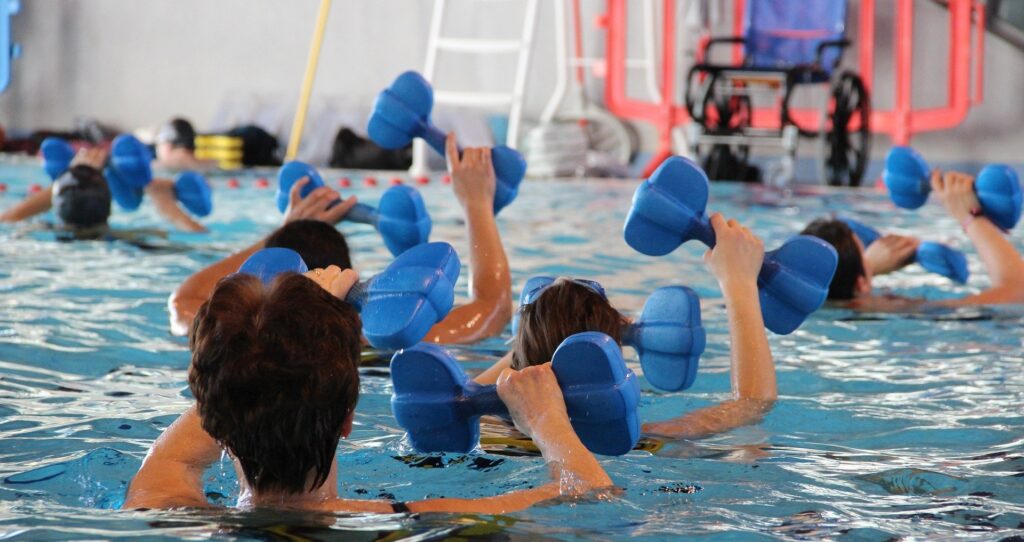- Aquatic plyometric training is effective in improving strength, jumping, and sprinting
A systematic review revealed that compared to land plyometric training, aquatic plyometric training resulted in similar improvements in:
• isokinetic knee strength
• vertical jump
• sprinting - Aquatic physiotherapy is beneficial for improving balance and decreasing the fear of falling in people with Parkinson’s disease
Compared to land-based therapy, aquatic physiotherapy is more beneficial in:
• improving scores in the Berg Balance Scale, the Time Up and Go Test
• improving postural sway
• reducing fear of falling
• improving health-related quality of life - Aquatic physiotherapy is effective in improving cardiovascular fitness in stroke survivors
A systematic review found that in comparison to land-based interventions, aquatic physiotherapy:
• was more effective in improving cardiorespiratory fitness after stroke in both the subacute and chronic stroke populations - Aquatic physiotherapy is effective in improving the strength of the paretic knee in stroke survivors
Aquatic physiotherapy may be a beneficial adjunct to land-based therapy by improving:
• knee extensor strength
• knee flexor strength
• overall function - Aquatic physiotherapy increases fitness and strength in people with type 2 diabetes
Aquatic physiotherapy provides an effective, low-impact exercise option that improves:
• aerobic fitness
• leg strength
• glycaemic control
• vascular function.*https://australian.physio/research/prf/translation/five-facts-about-aquatic-physiotherapy

